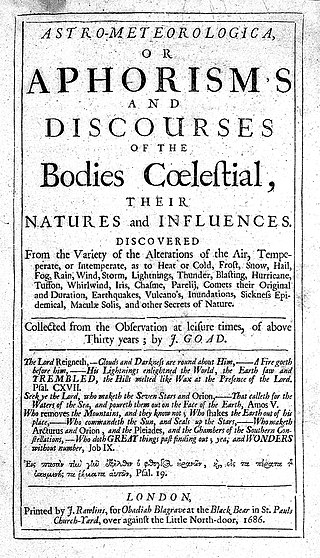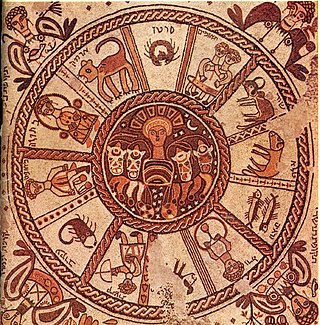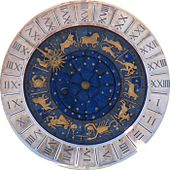
Astrology is a range of divinatory practices, recognized as pseudoscientific since the 18th century, that claim to discern information about human affairs and terrestrial events by studying the apparent positions of celestial objects. Different cultures have employed forms of astrology since at least the 2nd millennium BCE, these practices having originated in calendrical systems used to predict seasonal shifts and to interpret celestial cycles as signs of divine communications. Most, if not all, cultures have attached importance to what they observed in the sky, and some—such as the Hindus, Chinese, and the Maya—developed elaborate systems for predicting terrestrial events from celestial observations. Western astrology, one of the oldest astrological systems still in use, can trace its roots to 19th–17th century BCE Mesopotamia, from where it spread to Ancient Greece, Rome, the Islamic world, and eventually Central and Western Europe. Contemporary Western astrology is often associated with systems of horoscopes that purport to explain aspects of a person's personality and predict significant events in their lives based on the positions of celestial objects; the majority of professional astrologers rely on such systems.

A horoscope is an astrological chart or diagram representing the positions of the Sun, Moon, planets, astrological aspects and sensitive angles at the time of an event, such as the moment of a person's birth. The word horoscope is derived from the Greek words ōra and scopos meaning "time" and "observer". It is claimed by proponents of astrology that a horoscope can be used as a method of divination regarding events relating to the point in time it represents, and it forms the basis of the horoscopic traditions of astrology, although practices surrounding astrology have been recognized as pseudoscientific since the 18th century. Horoscope columns are often featured in print and online newspapers.
In finance, technical analysis is an analysis methodology for analysing and forecasting the direction of prices through the study of past market data, primarily price and volume. As a type of active management, it stands in contradiction to much of modern portfolio theory. The efficacy of technical analysis is disputed by the efficient-market hypothesis, which states that stock market prices are essentially unpredictable, and research on whether technical analysis offers any benefit has produced mixed results. It is distinguished from fundamental analysis, which considers a company's financial statements, health, and the overall state of the market and economy.

Western astrology is the system of astrology most popular in Western countries. Western astrology is historically based on Ptolemy's Tetrabiblos, which in turn was a continuation of Hellenistic and ultimately Babylonian traditions.
Hindu astrology, also called Indian astrology, or Jyotisha ; from jyót “light, heavenly body", and more recently Vedic astrology, is the traditional Hindu system of astrology. It is one of the six auxiliary disciplines in Hinduism that is connected with the study of the Vedas.

Astrometeorology or meteorological astrology is a pseudoscience that attempts to forecast the weather using astrology. It is the belief that the position and motion of celestial objects can be used to predict both seasonal climate and weather. Throughout most of its history astrometeorology was considered a scholarly tradition and was common in academic circles, often in close relation with astronomy, alchemy, meteorology, medicine, and other types of astrology.

Astrology has been a topic of debate among Jews for over 2000 years. While not a Jewish practice or teaching as such, astrology made its way into Jewish thought, as can be seen in the many references to it in the Talmud. Astrological statements became accepted and worthy of debate and discussion by Torah scholars. Opinions varied: some rabbis rejected the validity of astrology; others accepted its validity but forbid practicing it; still others thought its practice to be meaningful and permitted. In modern times, as science has rejected the validity of astrology, many Jewish thinkers have similarly rejected it; though some continue to defend the pro-astrology views that were common among pre-modern Jews.

Alan Leo, born William Frederick Allan, was an English astrologer, author, publisher, astrological data collector and theosophist. He is often referred to as "the father of modern astrology".

Sun sign astrology, or star sign astrology, is a modern simplified system of Western astrology which considers only the position of the Sun at birth, which is said to be placed within one of the twelve zodiac signs, rather than the positions of the sun and the other six 'planets'. This sign is then called the sun sign or star sign of the person born in that twelfth-part of the year. Sun sign astrologers take this basic twelve-fold division and relate all the current movements of all the planets to each other, using traditional rules to divine meanings for each sign separately. Because the Moon has the fastest apparent movement of all the heavenly bodies, it is often used as the main indicator of daily trends for sun sign astrology forecasts.

Jonathan Cainer was a British astrologer. He wrote astrological predictions six days a week for the Daily Mail, and forecasts for three Australian newspapers: the Sydney Daily Telegraph, the Melbourne Herald Sun, and the Perth Sunday Times. Cainer's predictions were also published in Hello, the Auckland Sunday News, the Botswana Echo, and Misty Magazine (Japan). It has been estimated that over twelve million people read his predictions.

Richard Harold Naylor, better known as R. H. Naylor, was a British astrologer, and the first sun sign astrologer. His horoscope of the newly-born Princess Margaret for the Sunday Express, led to a regular column that was soon copied by other British newspapers.

Dennis Elwell was a British astrologer, journalist, author and lecturer. He is the author of the book Cosmic Loom, and has contributed articles to the publications The Future of Astrology, the Astrological Association Journal, American Astrology, Prediction and Mountain Astrologer.
Stock market prediction is the act of trying to determine the future value of a company stock or other financial instrument traded on an exchange. The successful prediction of a stock's future price could yield significant profit. The efficient-market hypothesis suggests that stock prices reflect all currently available information and any price changes that are not based on newly revealed information thus are inherently unpredictable. Others disagree and those with this viewpoint possess myriad methods and technologies which purportedly allow them to gain future price information.
Locational astrology is any of various types of astrology that factor in specific locations of the Earth. The different types also carry a range of astrological techniques.

Astrology had support in early Christianity, but support declined during the Middle Ages. Support for it grew again in the West during the Renaissance.
William Delbert Gann or WD Gann, was a finance trader who developed the technical analysis methods like the Gann angles and the Master Charts, where the latter is a collective name for his various tools like the Spiral Chart, the Hexagon Chart, and the Circle of 360. Gann's market forecasting methods are purportedly based on geometry, astronomy, astrology, and ancient mathematics. Opinions are sharply divided on the value and relevance of his work. Gann authored a number of books and courses on shares and commodities trading.

Astrology consists of a number of belief systems that hold that there is a relationship between astronomical phenomena and events or descriptions of personality in the human world. Astrology has been rejected by the scientific community as having no explanatory power for describing the universe. Scientific testing has found no evidence to support the premises or purported effects outlined in astrological traditions.
Astrodatabank is a wiki website containing a collection of astrological data. The freely accessible database features the birth details and associated birth charts of public figures and mundane events. The collection was started by astrologer, Lois Rodden in 1979. Astrodatabank is currently owned and maintained by the Swiss company Astrodienst and is published in English.
Bill Meridian is a financial astrologer. He began to study astrology in 1972 as he entered Wall Street after he received his MBA at NYU. He trained as a bioenergetic therapist with Dr. John Pierrakos in New York City for 7 years. Bill began applying computers to financial astrology in 1983 eventually designing the AstroAnalyst. He wrote several books, including Planetary Stock Trading, which uses company first trade dates to pick winners.
Louise McWhirter was a financial astrologer who purported to use astrology to forecast the financial markets. In 1937, she published her only book, Astrology and Stock Market Forecasting. Some believe that “Louise McWhirter” was only an alias of famous market forecaster W. D. Gann.









